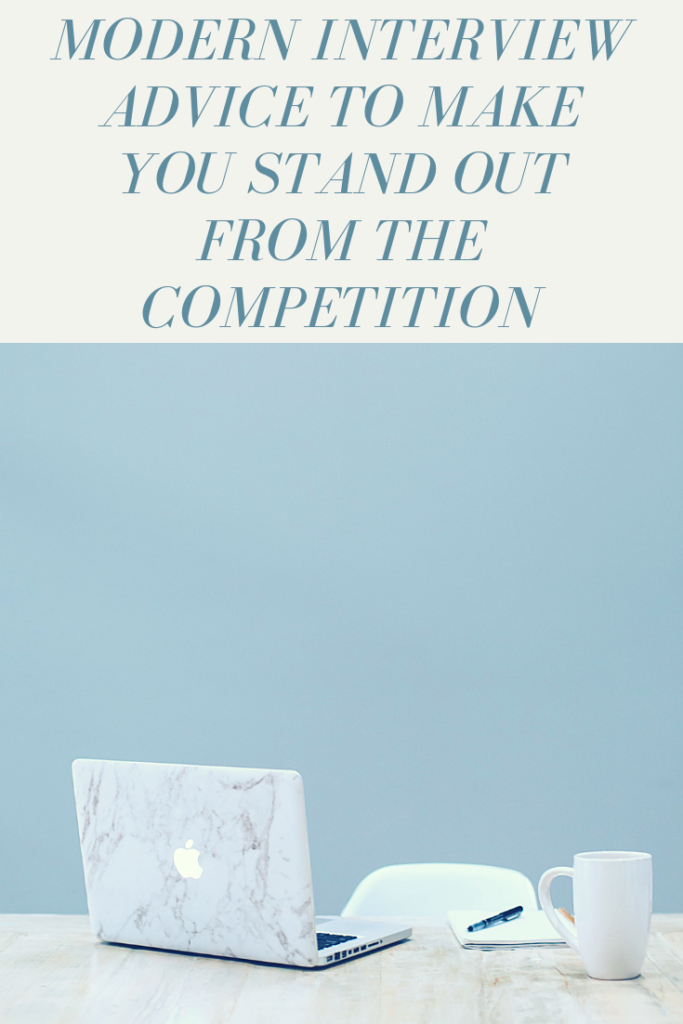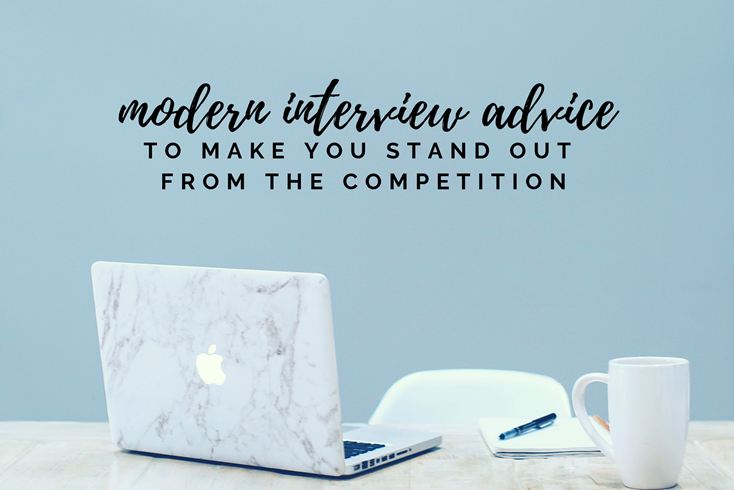|
|
Many of my clients come to me facing the daunting task of conducting a job search for the first time in 10 to 20 years and a lot has changed in that time. They are unaware of the modern interview advice available to them.
This is because most of the interview advice floating around the Internet is extremely outdated.
Not Your Grandma’s (Or Even Your Mama’s) Interview Advice
In fact, while recently helping a friend with her upcoming job search, I gave her some modern interview advice. She said she’d never heard of it before, and was shocked to learn it was something she could try.
“Do you mean I can actually do that for a job interview?” she exclaimed.
“Yes!” I said.
Modern Interview Advice
The advice I gave my friend was the same advice I had posted when answering the following question on Quora: “What are some smart interview answers?”
Smart interview answers are ones that show you have the company’s best interests at heart. (And if you don’t really care about the company, you probably shouldn’t be interviewing for a job there.)
You should always make your answers about them, not about you (until it’s time to negotiate an offer, at which point you need to make it a win-win situation).
Steps to Smart Interview Answers
1. Find out the most immediate need.
Find out what the company’s most immediate need is they’re hoping the person in this position can fulfill.
Most candidates will ask this question during the job interview, but by then it’s too late! You must determine this before the interview!
You can do this in a couple of ways:
- Do your research on the company (which should be a given…always do your research before going into any interview!).
- And ask the person with whom you’ll be interviewing what their most immediate need is (prior to the interview!)
You do this as soon as the interview has been scheduled by HR. Simply email the person who will be interviewing you and let him or her know you’re looking forward to the interview. Then ask the following question,
“What is the main thing you hope the next person in this position will accomplish or help solve?”
(You’ll probably be the only candidate who does this, which will make you stand out in a good way.)
2. Brainstorm a solution.
Use the answer to this question as your foundation for preparing for the interview.
Brainstorm one or two possible ways you can use your strengths to help get the desired result.
Also, think of examples of times you’ve achieved similar results.
3. Create a proposal.
Summarize your ideas and your past examples in a one-page proposal.
You don’t have to have all the details of a full proposal. Just an outline of what you’re thinking will work.
If you don’t have enough information to come up with a solution to the company’s problem, you can at least create a one-page case study of a time where you previously solved a similar issue.
Indicate the challenge you were facing, the action you took, and your accomplishment or the results of your solution.
4. Show and tell.
Bring hard copies of this proposal or case study to the interview with you so you have something tangible to show.
Make sure to bring enough copies for each person with whom you’ll be interviewing.
Introduce it at any of the following points in your interview that feel right:
- At the end of your answer to the question, “Tell us about yourself.” After you’ve described your skills, experience, and interest in the job, you can say you’ve given a lot of thought to the information the interviewer gave in your recent correspondence and you’ve put together some ideas of how your skills and experience can meet their specific needs. Let them know you’d be happy to share it with them. If they invite you to share it then, do so. If not, wait.
- At any point in the conversation where the door clearly opens for you to share your proposal. For instance, if they ask how you would handle the problem or issue, then answer that question with your proposal by walking them through your handout.
- If they ask, “Why should we hire you?” This question usually comes toward the end of an interview, so if you haven’t had the opportunity to introduce your proposal or case study yet, now’s your chance. You can summarize the strengths you have to offer and then say you’ve already given great thought to their most immediate needs and have drafted something you’d like to have the opportunity to implement if hired. Then walk them through your handout.
- If at the end of the interview you still haven’t had the opportunity, when they ask if you have any questions for them, use this time to remind them of the question you asked prior to the interview. Then show them how you’ve given it thought by giving them your handout and asking if it is something they could benefit from.
Make sure you pay attention to both verbal and non-verbal cues on how receptive they are to learning more about your proposal. Only bring it out if they express an interest in hearing more about it.
I guarantee you’ll likely be the only candidate who shows up to the interview with an idea or solution in hand.
Taking the time and effort to speak to the company’s most immediate need shows you really care about working for that company, which will make you stand out from today’s competition in a big way!
Want More Modern Interview Advice?
For more modern interview advice, check out the paNASH on-demand program The 3 Super Powers of Successful Job Seekers. It includes proven job search strategies that blow all the cookie-cutter strategies out of the water!
Related Post:
What You Need to Know About Job Interviews of The Modern Era






